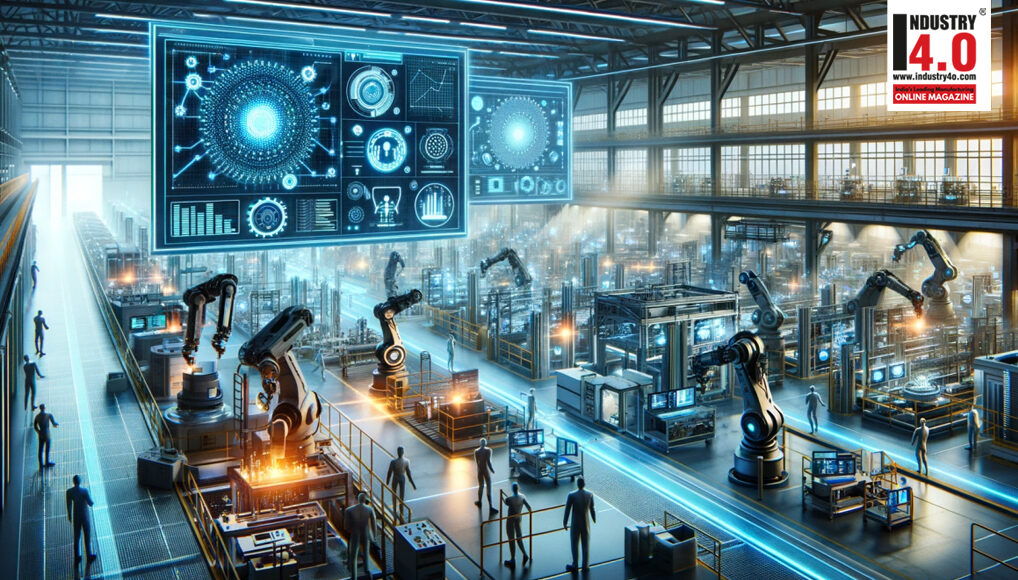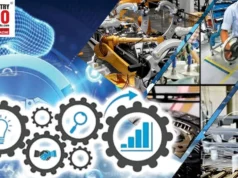Navigating the future of the industry: Presentation of the IT/OT convergence index for Digital Transformation
In the ever-evolving landscape of industry, mastering the integration of Information Technology (IT) and Operational Technology (OT) is no longer a luxury but a necessity for staying competitive. This article introduces the Index of Convergence (IoC), a groundbreaking metric designed to measure and predict the effective synergy between IT and OT. By detailing the application of the IoC across various industries, from automotive manufacturing to healthcare and retail, this piece underscores the tool’s versatility and pivotal role in guiding enterprises towards optimal operational efficiency and innovation.
Introduction
In today’s rapidly evolving industrial landscape, the seamless integration of information technology (IT) and operational technology (OT) is more than just a goal – it is a necessity to remain competitive. However, quantifying the success of such integrations remains a challenge for many leaders. Enter the Index of Convergence (IoC), a revolutionary metric designed to measure and predict harmony between IT and OT, guiding enterprises toward a future of greater efficiency and innovation.
Imagine leading a company and investing heavily in technologies like IoT, cloud computing, and advanced analytics. The potential is immense, but how can the real impact of these investments be measured? How do you adjust strategies in real time to ensure these technologies are not only present but effectively transforming your operations? This is where IoC comes in: it offers a very clear metric to validate your digital strategies and optimize your technology investments.
The Index of Convergence (IoC):
IoC is not just another business metric; It is a strategic beacon in the digital era, since it locates the dynamic progress that the company has from Industry 3.0 to Industry 4.0 while the projects that are part of the roadmap are implemented; This is achieved by integrating key performance indicators such as interoperability, overall equipment effectiveness and sustainability, IoC provides a comprehensive snapshot of your current operations and predicts future efficiencies.
Leveraging Predictive Analytics:
We utilize advanced predictive analytics to project the trajectories of digital transformation. By deploying two sophisticated models, the Index of Convergence (IoC) establishes a solid decision-making foundation:
1. Multiple Linear Regression Model:
This model utilizes the formula,
![]()
represents various metrics such as interoperability and equipment effectiveness. By analyzing current data, it predicts future levels of IT and OT integration, enabling businesses to understand how decisions made today will impact outcomes tomorrow.
2. Time Series Forecasting Model (ARIMA):
Using the formula.
![]()
This model is optimized for identifying and following trends over time. It forecasts the effects of operational changes on future performance, making it an essential tool for long-term strategic planning.
The regression model shows slightly higher forecasts, suggesting greater optimism based on specific measured data, while the ARIMA model, based on historical trends, suggests a more conservative estimate. The comparison of the two methods has allowed us to have options for conservative or optimistic decision making.
Practical Application:
An example may be the automotive sector, where IoC can be used to gain detailed insights into your digital transformation efforts. Some elements that are taken into account for the IoC calculation are: interoperability, overall equipment effectiveness (OEE), human-machine collaboration (HMC), asset resilience (RA), sustainability (S), physical asset connectivity, enablers technological, value. added to the business, etc. Using the IoC, the factory can predict an increase in their digital transformation score, allowing them to make strategic adjustments and optimize the ROI of the technology.
Broader Industry Adoption:
The flexibility of the IoC allows it to be adapted across multiple sectors:
Healthcare: Hospitals could use IoC to streamline the integration of electronic medical records with real-time patient monitoring systems, improving patient outcomes through better data-driven decisions.
Retail: Retail chains can deploy the IoC to evaluate and enhance the synergy between e-commerce platforms and physical stores, ensuring seamless customer experiences.
Manufacturing: Beyond automotive, manufacturers in electronics, textiles, and other sectors can use the IoC to optimize machine performance, reduce downtime, and accelerate production cycles through more effective IT-OT alignment.
The Index of Convergence is transforming the way industries approach IT and OT integration. By providing a measurable, predictive framework, the IoC empowers leaders to navigate their digital transformation journeys with greater confidence and strategic foresight. As industries continue to evolve, the IoC serves as a critical tool, ensuring that technological advancements lead to tangible improvements in operational efficiency and business outcomes. Moving forward, we will explore further applications and success stories, showcasing how this powerful tool is reshaping the industrial world.
About the author:

Dr. Alejandro Cortés Leal, PhD.
Professor, Researcher & Disseminator of Industry 4.0
UNIR México
Dr. Alejandro Cortés Leal Ph.D is a professor, researcher and disseminator of Industry 4.0.
Dr. Alejandro Cortés Leal main line of research is Intelligent Maintenance, Wireless Sensor Networks and Worker 5.0, where non-intrusive technologies are used. He has a Master’s Degree in Information Technology, as well as a Specialty in Advanced Manufacturing.
Dr. Alejandro Cortés Leal has participated as an Engineering and Master’s professor and he is currently Coordinator of the Master’s Degree in Industry 4.0 at the International University of La Rioja in Mexico. He belongs to a research group that aims to conceptualize and design 5G/6G networks for Industry. He has participated in automation and industrial digital transformation projects, and carries out training and consulting on Industry 4.0 for Latin America through the digitalisco initiative:
Dr. Alejandro Cortés Leal, PhD. seek to improve the economy by promoting the digital and human transformation.
Dr. Alejandro Cortés Leal, PhD. research and disseminate issues of Industry and Society 4.0 and 5.0 as well as their concerted application in companies.
Dr. Alejandro Cortés Leal, Professional Ethics ( Seasonal )
Dr. Alejandro Cortés Leal – Consulting, Training & Projects ( Freelance )
Dr. Alejandro Cortés Leal, PhD. is Bestowed with the following Licences & Certifications :
https://www.linkedin.com/in/al
Dr. Alejandro Cortés Leal can be contacted at:
LinkedIn | E-mail | YouTube













